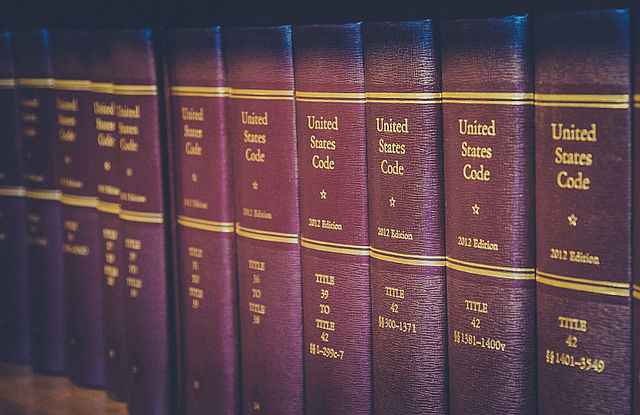
For the first time in over 100 years, on June 24, 2019, the U.S. Supreme Court agreed to hear a case, Georgia v. Public Resource Org Inc., to decide “whether the government edicts doctrine extends to works that lack the force of law, such as annotations in the Official Code of Georgia Annotated [OCGA].”
What is the “government edicts” doctrine? Simply put it means that the government cannot own copyrights in governmental works or pronouncements such as legal opinions, statutes, and regulations as well as other documents created by the government. As a matter of public policy citizens must have unrestrained access to the laws that govern them. Similar provisions occur in most, but not all, systems of copyright law. The doctrine is codified in Section 105 of the Copyright Act, which states that “[c]opyright protection under this title is not available for any work of the United States Government”. The question of whether the government edicts doctrine applied to works created by state governments was answered in the 19th century when courts held that state judges’ opinions were not subject to copyright protection.
There were three important 19th century cases all of which were the subject to the Supreme Court’s scrutiny in the Georgia case mentioned above. In Wheaton v. Peters (1834), the Supreme Court affirmed that no reporter has or can have any copyright in the written opinions delivered by this court; In Banks v. Manchester (1888), involving the Ohio Law Journal, the Court held that with respect to state courts, judges opinions are not subject to copyright protection, although extra text like the statement of the case and syllabus may be subject to copyright protection. Finally, in Callaghan v. Myers (1888), involving publication of Illinois cases, the Supreme Court held that a court reporter may own a copyright in any matter other than the judges’ opinions themselves.
So what happened in the Georgia case that caused the Supreme Court to take another look as this seemingly well-established principle? Georgia publishes and sells the Official Code of Georgia Annotated. Interestingly, the Lexis Corporation under contract with the State of Georgia drafts the annotations under the supervision of the Georgia Revision Commission. Public Resource Org (PRO) is a public service organization that publishes free-of-charge statutes and other public documents. It published the Official Georgia Code Annotated online, ignoring numerous cease and desist letters served on it by the State of Georgia. All agreed that the statutes themselves were public domain, so the question is whether the state of Georgia can own a copyright in the annotations accompanying the “official” code or whether they fall within the government edicts doctrine. Georgia, of course, argued that following Supreme Court’s precedents, it can own a copyright in the annotations whereas PRO argued that they were public domain.
The United States Supreme Court has yet to render its decision but the opinion of the 11th Circuit Court of Appeals, which decided on behalf of PRO, is instructive. It held that the annotations were sufficiently “law like” that the they could deemed uncopyrightable government works. Why was this? In short, the court looked at several factors:
- Although Lexis is the author, Georgia holds the copyright;
- the Georgia Revision commission, a government body, supervises Lexis;
- the code is called the “Official” code of Georgia; and
- the code states that it “shall be merged with annotations… And [are] published by authority of the state… And when so published [or to] be known and may be cited as the’ Official Code of Georgia Annotated.’
The 11th Circuit Court of Appeals concluded:
An analysis of these factors yields the conclusion that the annotations in the OCGA, while not having the force of law, or part and parcel of the law. They are so enmeshed with Georgia’s law is to be inextricable. The annotations are themselves law-like insofar as we examine who made them, how they were made, and the role they play in the legislative and jurisprudential spheres of Georgia’s public life. In consequence, they too represent a work, like the statues themselves that is constructively altered by the people they are therefore uncopyrightable.
We will look to see whether the US Supreme Court agrees in a later installment.
–Adam G. Garson, Esq.

